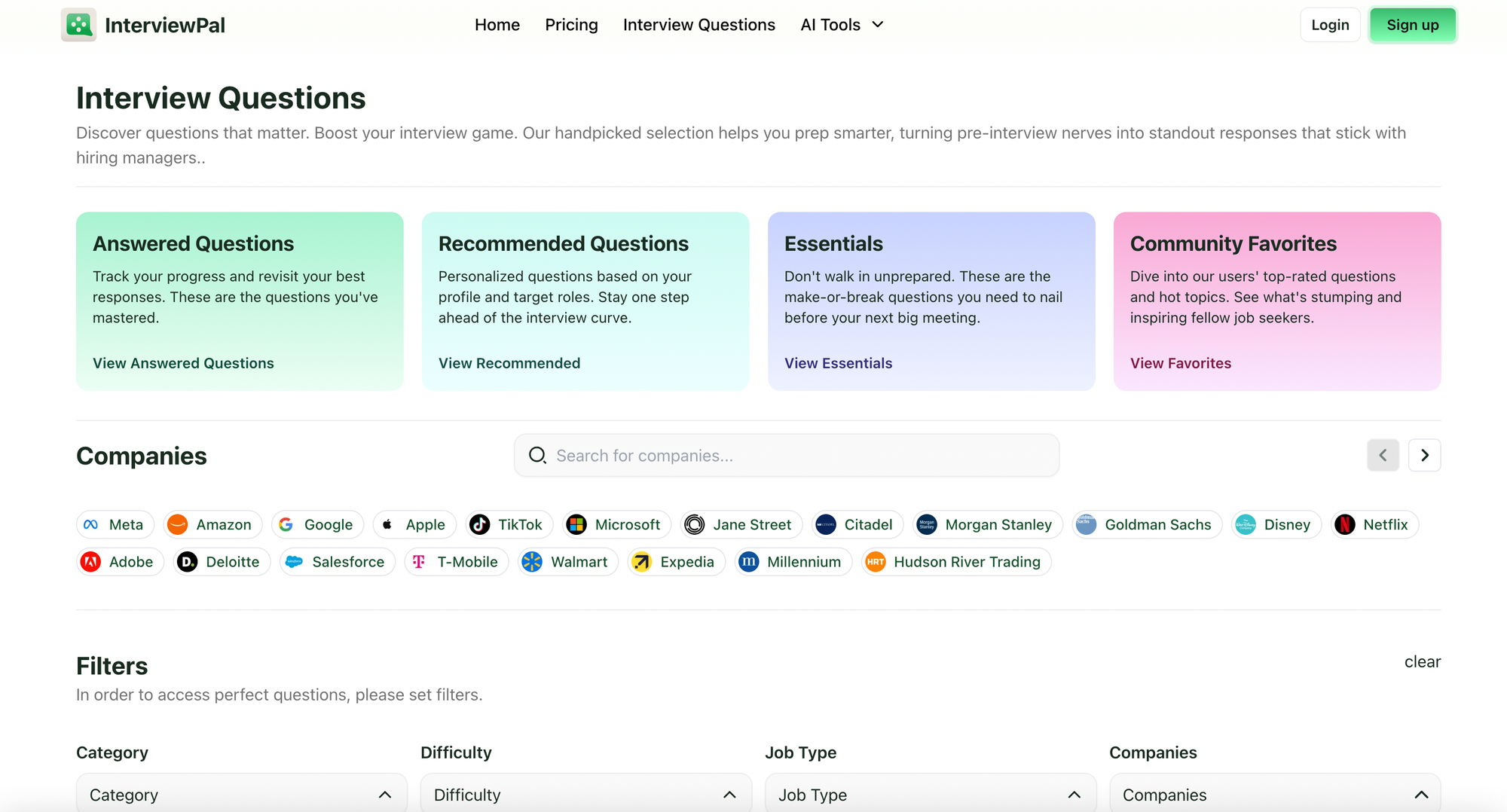Your resume is a snapshot of your career, a concise list of your skills and experience. Your cover letter, however, is your opportunity to expand on those points, explaining why your background makes you the right fit for this particular role and company. It's a chance to show your personality, passion, and understanding of the hiring manager's needs. It's how you create a personal connection in a digital application process.
Why Cover Letters Matter
Is a cover letter really necessary? Isn't a resume enough? While a resume is essential, a well-written cover letter can be the deciding factor, especially in competitive job markets. It allows you to move beyond the facts and figures and show the hiring manager who you are as an individual. It answers the question, "Why should we choose you?"
Imagine two candidates with similar resumes – similar skills, similar experience. The candidate who crafts a thoughtful cover letter, demonstrating genuine interest and a grasp of the role, is much more likely to stand out. A 2020 report indicated that candidates who include a tailored cover letter are 53% more likely to get an interview. That’s a considerable edge.
More Than Just a Formality
A cover letter isn't simply a restatement of your resume. It's an opportunity to tell a story, to demonstrate why your skills and experience are relevant. It's also a chance to address any questions a hiring manager might have, such as career gaps or industry changes.
For example, if you're applying for a marketing role after working in a different field, your cover letter can explain how transferable skills like project management, communication, or analytical thinking will benefit the marketing team. It's the place to express your passion for marketing and the reasons behind your career shift.
By showcasing your understanding of the company's culture and values, and by clearly articulating your interest in the specific position, you transform a standard application into a persuasive argument for your candidacy. You're not just saying, "I need a job." You're saying, "I want this job, and here's why I'm the perfect person for it." This personalized approach significantly impacts how your application is received. In a competitive job market, that difference can be the key to landing your dream job.
Cover Letter Structure
Now that we've covered the importance of a compelling cover letter, let's discuss how to write one. A strong cover letter, like a good story, has a beginning, middle, and end. Understanding the structure is essential for capturing the hiring manager's attention and presenting your qualifications clearly and persuasively.
Your Contact Information
Begin with your contact information at the top: name, phone number, email address, and LinkedIn profile URL (if applicable). Make it easy for the hiring manager to connect with you. While less common now, you can also include your physical address.
The Salutation
Next is the salutation. Whenever you can, address your cover letter to a specific individual. Research the company website or LinkedIn to find the hiring manager's name. A direct address demonstrates personalization. If you cannot find a name, use "Dear Hiring Manager" or "Dear [Team Name] Hiring Team." Avoid outdated phrases like "To Whom It May Concern."
The Opening Paragraph: Your Hook
This is your chance to capture the reader's attention. State the specific position you're applying for and how you learned about it. Briefly mention something that interests you about the role or the company – their work in a specific area, their culture, or a project that resonates with you. This paragraph sets the tone and shows genuine interest. For instance, instead of “I am writing to apply for the Marketing Manager position,” consider “I was excited to see the Marketing Manager opening at [Company Name], especially given your recent success with the [Specific Project] campaign.”
The Middle Paragraphs: Showcasing Your Value
This is the core of your cover letter. Connect your skills and experience to the role's requirements, providing specific examples and quantifiable achievements. Don't simply list your past responsibilities; explain how you used your skills to achieve results. Show, don't tell!
If the job description emphasizes data analysis, instead of saying, "I have strong data analysis skills," you might say, "At [Company Name], I used data analysis to identify a bottleneck in our sales process, resulting in a 15% increase in conversions within three months." Using numbers makes a stronger impact.
The Closing Paragraph: Your Call to Action
Restate your enthusiasm for the role and express confidence in your ability to contribute. Thank the hiring manager and clearly state your availability for an interview and how to contact you. A strong closing leaves a positive final impression.
By following this structure, you can create a cover letter that effectively presents your qualifications and makes a compelling case for your candidacy. It's your opportunity to differentiate yourself and connect with the hiring manager.
Writing Your Opening Paragraph

With your contact information and salutation complete, it's time to craft a compelling opening paragraph. This is your hook, your opportunity to make a strong first impression. It's the elevator pitch of your cover letter – concise, compelling, and tailored to the job and company. A successful cover letter hinges on a strong opening.
Making a Strong First Impression
Avoid generic openings like, "I am writing to express my interest..." Hiring managers often receive numerous applications and can quickly identify templated letters. Personalize your opening and demonstrate genuine enthusiasm.
State the position you're applying for and where you saw the listing. Then, mention something specific that interests you about the company or role. This could be their mission, a recent project, their culture, or a product or service.
Examples of Compelling Openings
Suppose you're applying for a Social Media Manager position at a company known for innovative marketing. Here are some engaging opening examples:
- Option 1 (Focusing on a specific campaign): "I was impressed by your recent [Campaign Name] campaign, and I'm eager to use my social media expertise to contribute to future successes as Social Media Manager, as advertised on [Platform]."
- Option 2 (Highlighting company culture): "Having followed [Company Name]'s work in [Industry], I'm excited by your innovative approach to [Area of interest] and believe my passion for community building aligns with the Social Media Manager position I found on LinkedIn."
- Option 3 (Emphasizing a specific skill): "My experience building online communities, combined with my track record of increasing brand visibility through targeted social media strategies, makes me an ideal candidate for your Social Media Manager role, which I learned about through [Referral Name].”
These examples are specific and demonstrate genuine interest, going beyond a simple statement of interest. This personalization helps your cover letter stand out and increases your interview chances. By capturing attention from the start, you encourage the hiring manager to explore your qualifications further.
Highlighting Your Skills

With a compelling opening, it's time to showcase your skills and experience. This is where you sell yourself and demonstrate why you're the right fit. It's not just about listing your accomplishments; it's about showing how your skills relate to the job description and how you've used them to achieve results. A strong presentation of your skills is essential for landing an interview.
Connecting Your Skills to the Job Description
Carefully review the job description, identifying the key skills and qualifications. Consider your own experience and how your skills align with these requirements. Draw a clear connection between what they seek and what you offer.
If the description mentions strong communication skills, don't simply state, "I have excellent communication skills." Provide a concrete example: perhaps you delivered a successful presentation, facilitated a tough negotiation, or developed a communication strategy that improved teamwork. Specific examples add weight and credibility.
Quantifying Your Achievements
Use numbers, data, and metrics to demonstrate the impact of your work. This makes your accomplishments more tangible. Instead of "I increased sales," say "I increased sales by 15% in the first quarter." Concrete data clarifies your capabilities.
Focusing on Transferable Skills
Even if your experience isn't directly related to the job, highlight transferable skills valuable in any role. These might include communication, problem-solving, leadership, teamwork, time management, or adaptability. If applying for a marketing role after working in customer service, emphasize your communication, ability to handle difficult situations, and experience working with clients. Relate these skills to the marketing position and explain how they'll make you an asset.
Telling a Story
Treat each skill you highlight as a short story. Set the scene, explain the challenge, describe your actions, and share the positive outcome. This narrative approach makes your cover letter more engaging and memorable. For structuring examples effectively, consider the STAR method: How to master the STAR method when discussing challenging situations.
By highlighting your skills strategically and connecting them to the job requirements, you transform your cover letter from a general summary into a persuasive argument for your suitability. Show the hiring manager not just what you've done, but what you're capable of doing for them. Don't just tell them you're a good fit; show them.
Let's examine some common cover letter errors to avoid. Sidestepping these errors significantly improves your interview chances. Think of this as refining your work – polishing it to perfection.
Generic and Impersonal Content
Avoid sending a generic cover letter. Hiring managers can easily spot a template. Tailor your letter to the specific job and company. Research their values, mission, and recent projects. Mention something specific that resonates with you, showcasing your genuine interest in this particular opportunity.
Typos and Grammatical Errors
Thorough proofreading is crucial. A single typo can create a negative impression. Review your cover letter multiple times, or ask a friend to proofread it. Tools like Grammarly can also be helpful.
Overly Lengthy or Too Brief
Aim for a concise cover letter, ideally no more than one page. Hiring managers appreciate brevity. However, a cover letter that's too short can suggest a lack of effort. Focus on key points and relevant skills.
Negative Language and Complaining
Maintain a positive focus. Avoid negative language or complaints about previous employers. Frame your experiences positively, highlighting what you learned and how you grew. Your cover letter should convey enthusiasm and optimism.
Not Addressing Specific Requirements
Ensure your cover letter directly addresses the job description's specific requirements. Use keywords and demonstrate how your skills and experience align with their needs. This shows you understand the role and possess the necessary qualifications.
By avoiding these mistakes and crafting a personalized, polished, and persuasive cover letter, you'll create a positive impression and increase your interview chances.

After showcasing your skills, it's time to close effectively. Your closing paragraph is your final impression, so make it count. It's not just a thank you; it's a reiteration of your enthusiasm, a summary of your qualifications, and a clear statement of next steps. A strong closing is crucial for a successful cover letter.
Reinforce Your Enthusiasm
Restate your genuine interest in the specific role and company, explaining why you're a good fit. Instead of "I'm excited about this opportunity," try "I'm confident my passion for [industry/area of expertise] and experience in [relevant skill] align perfectly with this role and [Company Name]'s mission."
Summarize Your Value Proposition
Remind the hiring manager of your key strengths. What are the two or three most important things you want them to remember? Summarize how your skills and experience will benefit their team and contribute to their goals. For example: “My project management skills and experience leading cross-functional teams will allow me to contribute immediately to [Company Name/Team Name/Project Name].”
Clear Call to Action
Clearly state your next steps and your availability for an interview. Don't leave them guessing. A simple "I'm available for an interview at your convenience and can be reached at [phone number] or [email address]" works well.
Expressing Gratitude
Express your thanks for their time and consideration. A simple "Thank you for your time and consideration" is sufficient. Avoid overly enthusiastic language.
A strong closing paragraph reinforces your suitability for the job, leaving a lasting positive impression. It’s the final piece of a compelling cover letter that grabs attention and secures an interview.
Cover Letter Examples
We've discussed the importance of cover letters, their structure, writing a compelling opening, highlighting your skills, and avoiding common mistakes. Now, let's look at some real-world examples. Seeing these elements in action can be beneficial in understanding how to write a truly impressive cover letter.
Example 1: Marketing Manager Role
Contact Information:
[Your Name] [Your Phone Number] [Your Email Address] [Your LinkedIn Profile URL]
Date:
[Date]
Salutation:
Dear [Hiring Manager Name],
Opening Paragraph:
I was excited to find the Marketing Manager opening at [Company Name] on LinkedIn. Your company's innovative approach to content marketing, especially the recent [Specific Campaign Name] campaign, aligns with my passion for creating engaging and effective marketing strategies.
Middle Paragraphs:
As Marketing Coordinator at [Previous Company], I led the development and implementation of social media campaigns that increased follower engagement by 20% and website traffic by 15% within six months. I also played a key role in launching a new product line, developing the marketing strategy and managing a budget of [Dollar Amount]. This experience refined my skills in market analysis, content creation, and campaign management, preparing me to contribute effectively to [Company Name]'s marketing goals.
My experience using data analytics to improve marketing performance aligns with your focus on data-driven decisions. At [Previous Company], I implemented an analytics tracking system that provided valuable insights into customer behavior, leading to a 10% improvement in conversion rates.
Closing Paragraph:
I believe my skills and experience in developing and executing successful marketing campaigns make me a strong candidate. I'd love to learn more about this opportunity and discuss how I can contribute to [Company Name]'s continued success. Thank you for your time and consideration. I'm available for an interview at your convenience and can be reached at [Your Phone Number] or [Your Email Address].
Sincerely,
[Your Name]
Example 2: Software Engineer Role
Contact Information:
[Your Name] [Your Phone Number] [Your Email Address] [Your LinkedIn Profile URL]
Date:
[Date]
Salutation:
Dear [Hiring Manager Name],
Opening Paragraph:
I'm writing to express my strong interest in the Software Engineer position at [Company Name], advertised on [Platform]. Having followed [Company Name]'s work in [Specific Technology], I'm particularly interested in your commitment to developing advanced solutions.
Middle Paragraphs:
As a Junior Software Engineer at [Previous Company], I gained valuable experience in developing and maintaining web applications using [Programming Languages]. I was key in developing a new feature that streamlined the user onboarding process, resulting in a 25% reduction in user drop-off rates. My contributions to this project demonstrated my proficiency in [Specific Technical Skills] and my ability to work effectively in a fast-paced, agile environment.
I'm also enthusiastic about [Specific Technology] and have pursued independent projects in this area, including [Mention a Specific Project]. This experience deepened my understanding of [Specific Technical Skills] and further honed my problem-solving skills.
Closing Paragraph:
I'm confident that my technical skills, combined with my passion for innovation and collaborative approach, make me a strong fit. I'm eager to discuss how my skills can contribute to [Company Name]'s continued growth. Thank you for your time and consideration. I'm available for an interview at your earliest convenience and can be reached at [Your Phone Number] or [Your Email Address].
Sincerely,
[Your Name]
These examples demonstrate how to tailor your cover letter to the specific role and company, highlight relevant skills and achievements, and maintain a professional and enthusiastic tone. Use these as inspiration to craft your own compelling cover letter and secure that interview.
Ready to master all the crucial behavioral interview questions? Check out our extensive question bank and start practicing with real-world questions and scenarios. Because in today's interconnected workplace, your ability to work effectively with others isn't just a nice-to-have – it's a must-have for career success.



